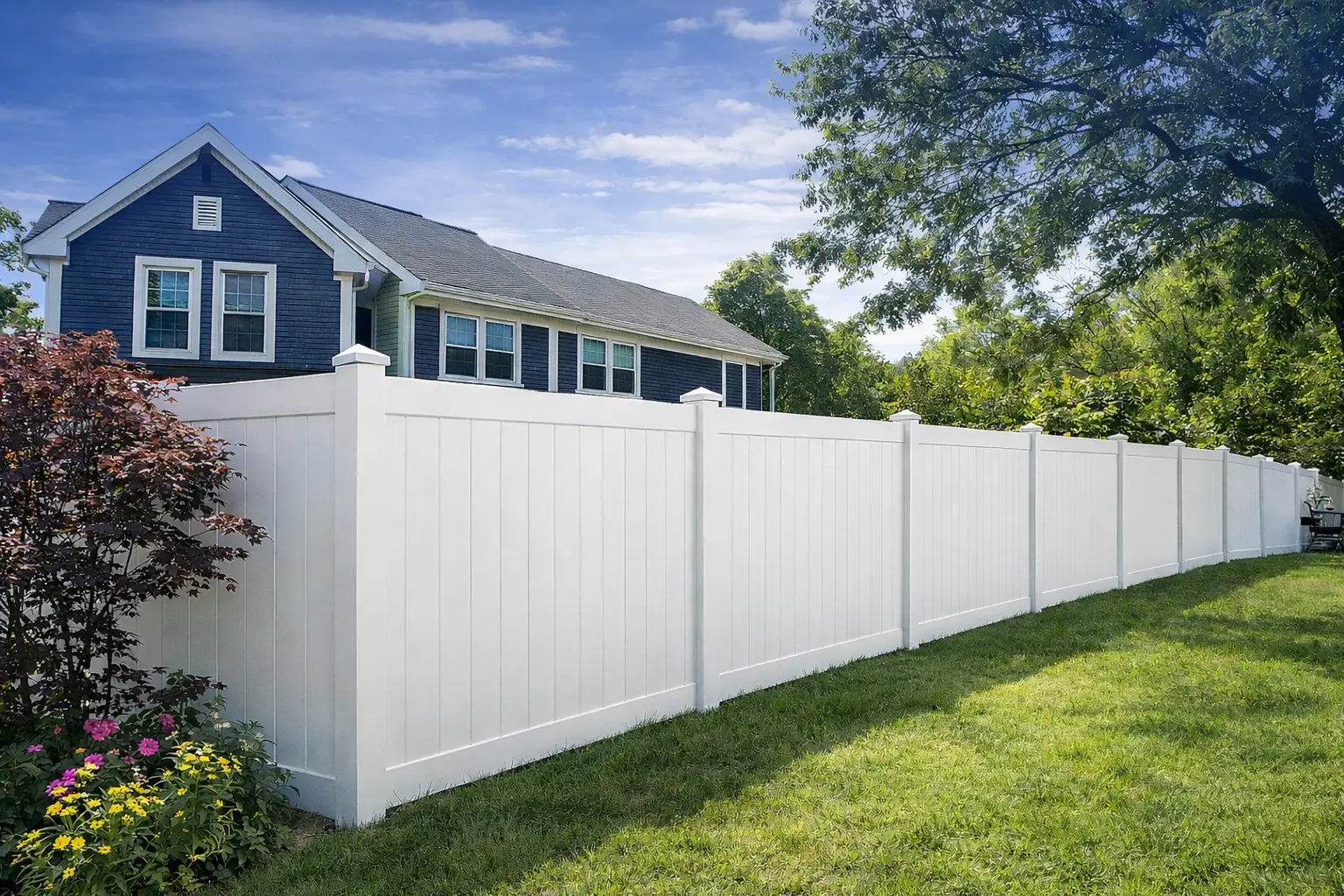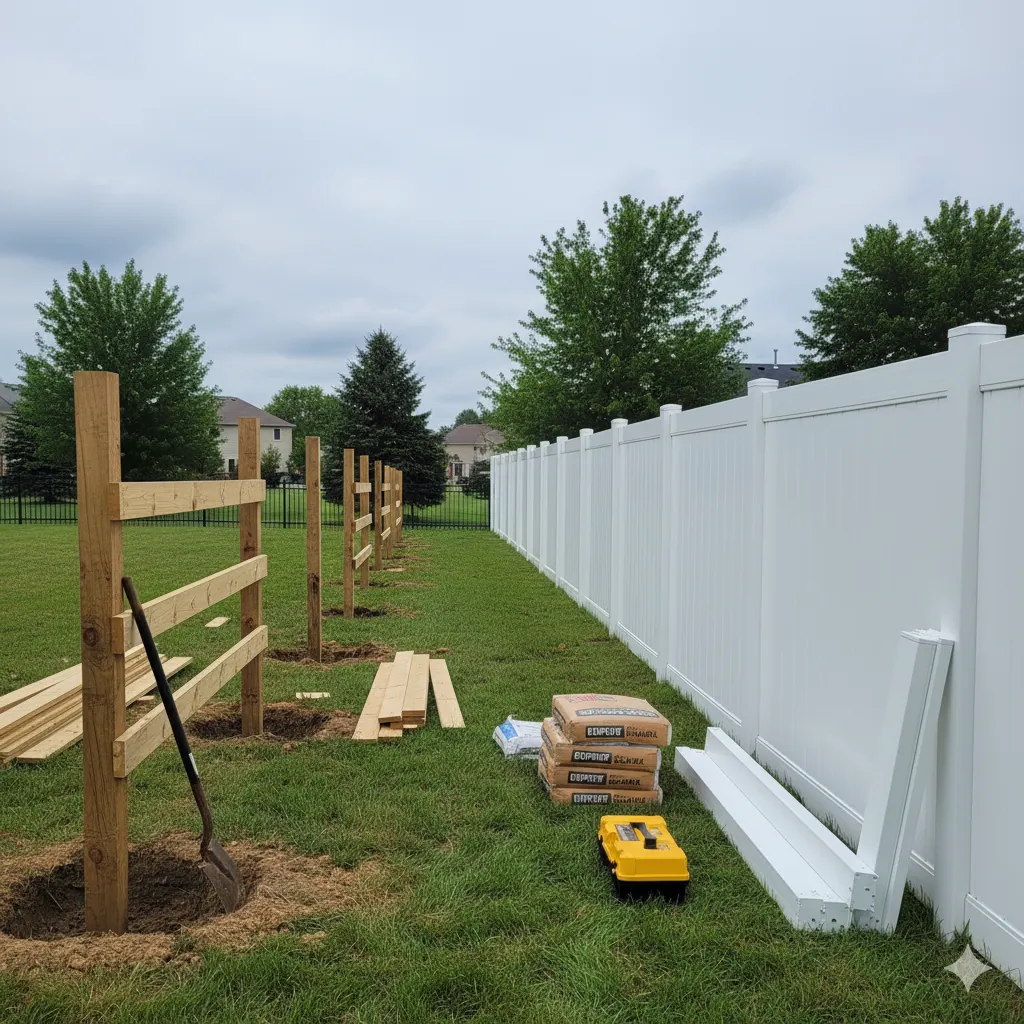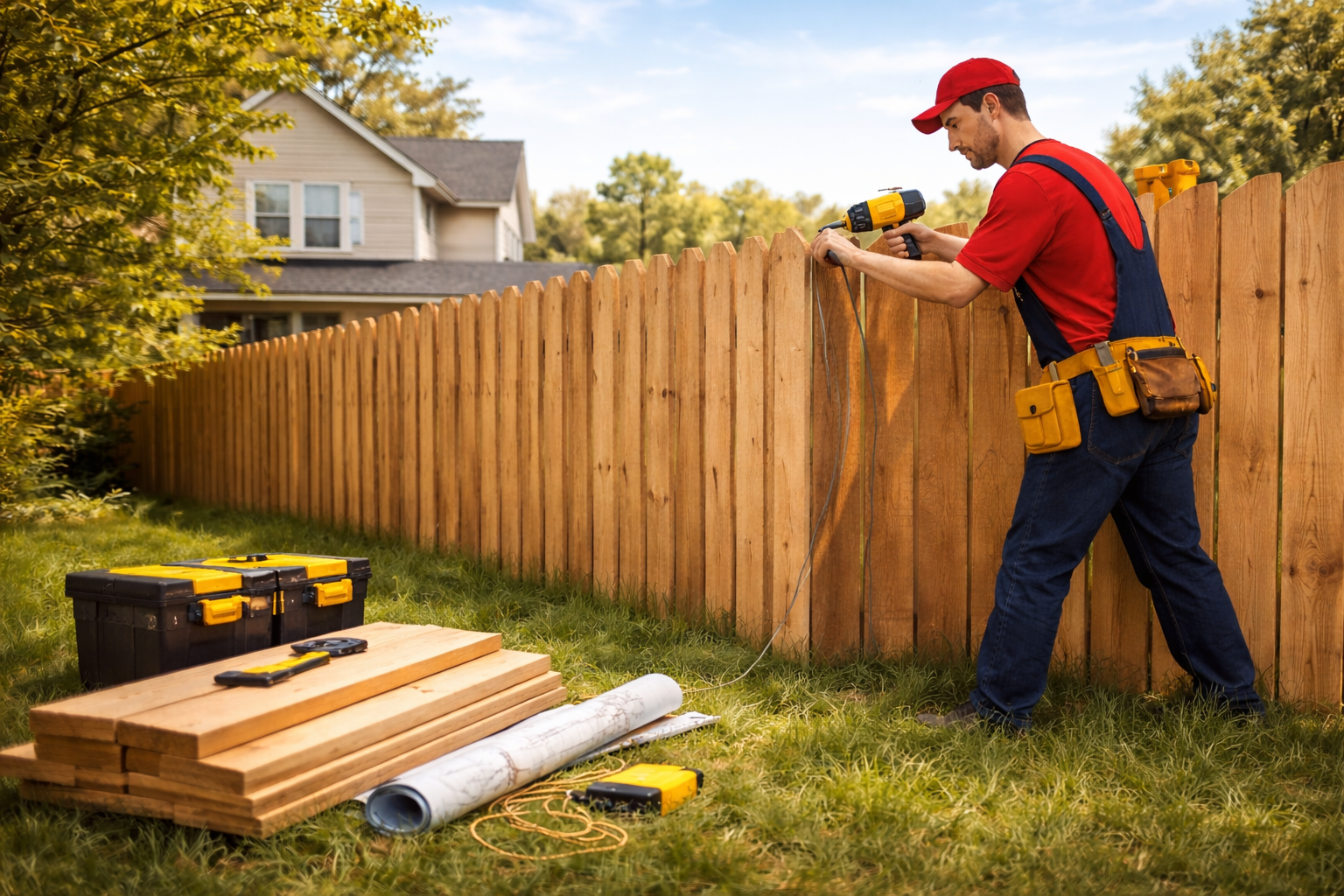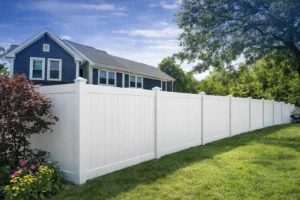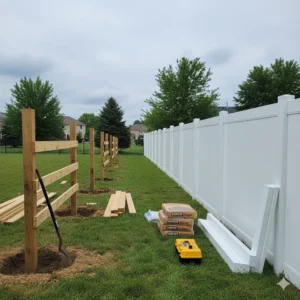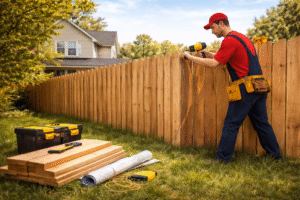Living in Buffalo, NY means getting ready for long, freezing winters and heavy snow. People in Buffalo are used to lots of snow, but many forget how important a good fence can be in the winter. Picking the right kind of fence can help with winter care and save you time and money.
If you’re thinking about adding a fence that can handle Buffalo’s tough winters, it’s important to know which materials are strong enough for the cold, snow, and wet weather. If you own a home or a business, this guide will help you choose the best fence for winter.
This guide explains the best fence for snow Buffalo NY, looking at materials, costs, strength, and how they hold up against freezing weather, heavy snow, and moisture. It will help you make a smart choice.
Why Winter Matters When Choosing a Fence
Buffalo winters are no joke. The city gets over 90 inches of snow every year! So, your fence has to do more than just show where your property ends. It has to survive snow piles, ice, and freezing temperatures. When it comes to fencing in cold climates, here are some problems to watch for:
- Frost heave: Water in the ground freezes and pushes fence posts upward.
- Moisture damage: Snow melts and then refreezes, which can ruin some fence materials.
- Wind exposure: Strong winter winds can damage fencing, especially solid wood or vinyl.
- Salt exposure: Salt from roads and sidewalks can wear down metal fences near public places.
That’s why it’s smart to buy winterproof fences made from frost-resistant materials, so you don’t have to fix or replace your fence every year.
Comparison Table: Best Fence Materials for Buffalo Winters
Here’s a chart comparing the best types of fence materials for snowy Buffalo winters:
| Material | Durability in Snow | Maintenance | Aesthetic Appeal | Estimated Lifespan | Winterproof Score (1–10) |
|---|---|---|---|---|---|
| Vinyl | Excellent | Low | Modern, clean | 20–30 years | 9 |
| Aluminum | Good | Low | Sleek, minimal | 20–25 years | 8 |
| Pressure-Treated Wood | Moderate | Medium–High | Natural, classic | 10–15 years | 6 |
| Composite | Excellent | Low | Wood-look, high-end | 25–30 years | 9 |
| Chain Link (galvanized) | Good | Low | Industrial, open | 15–20 years | 7 |
| Wrought Iron | Poor | High | Ornate, vintage | 10–20 years (with maintenance) | 5 |
Top Fence Materials to Consider
Vinyl Fencing – Low Maintenance and High Durability
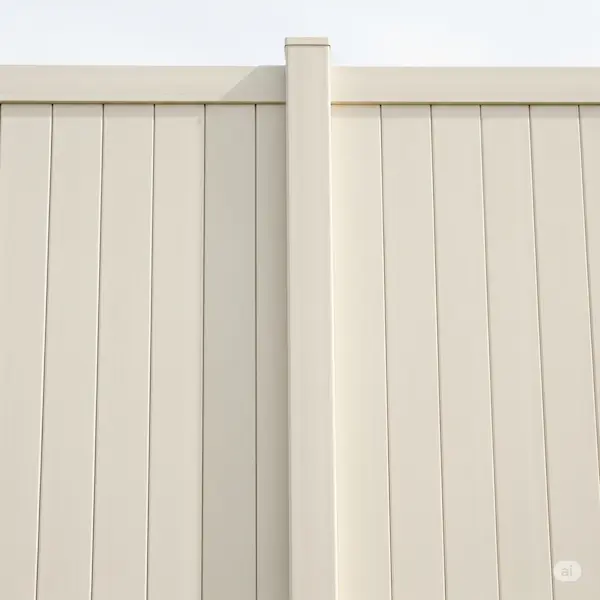
Vinyl is one of the top picks for people looking for the best fence for snow Buffalo NY. It doesn’t rot, rust, or hold moisture. It also bends slightly under pressure, which helps it handle snow piles and strong winds.
Pros:
- Great against moisture and frost
- No need to paint or stain
- Easy to clean
Cons:
- Can crack in extreme cold (cheaper types)
- Costs more at first than wood
If you live in a neighborhood or have kids and pets, vinyl is a safe, long-lasting choice that saves you money over time.
Aluminum Fencing – Lightweight and Rust-Resistant
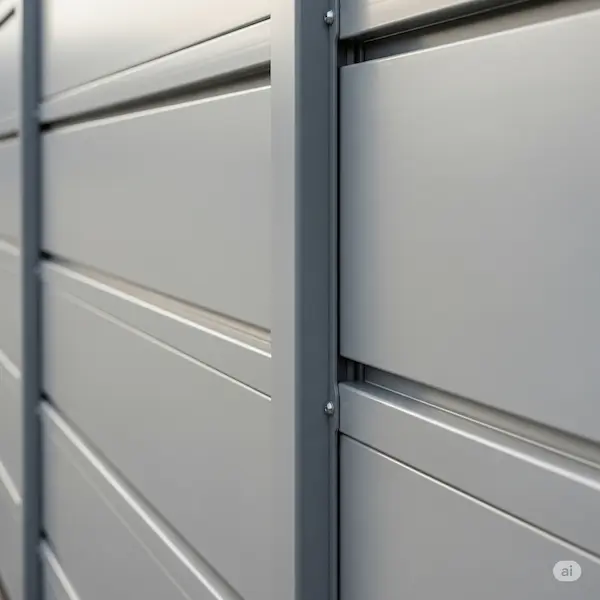
Aluminum fences look nice and work well in snowy places. Unlike wrought iron, aluminum won’t rust and doesn’t need much care. Snow and wind can pass through it, which means less pressure on the fence.
Ideal Use: Great for home borders, pools, and front yards in cold areas.
Bonus Tip: Choose powder-coated aluminum for even better moisture-resistant fencing.
Composite Fencing – The Premium Wood Alternative
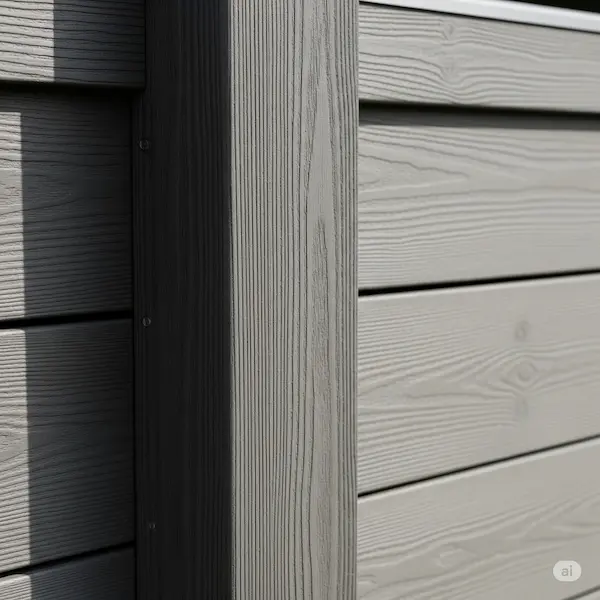
If you like the look of wood but want something stronger, composite fencing is a great choice. It’s made from recycled wood and plastic, so it looks like wood but is weatherproof.
Why it works in winter:
- Doesn’t bend or crack in freezing weather
- Strong against moisture and rot
- Needs very little care
Composite is great if you want a fence that looks good and lasts a long time.
Pressure-Treated Wood – Budget-Friendly with Proper Care
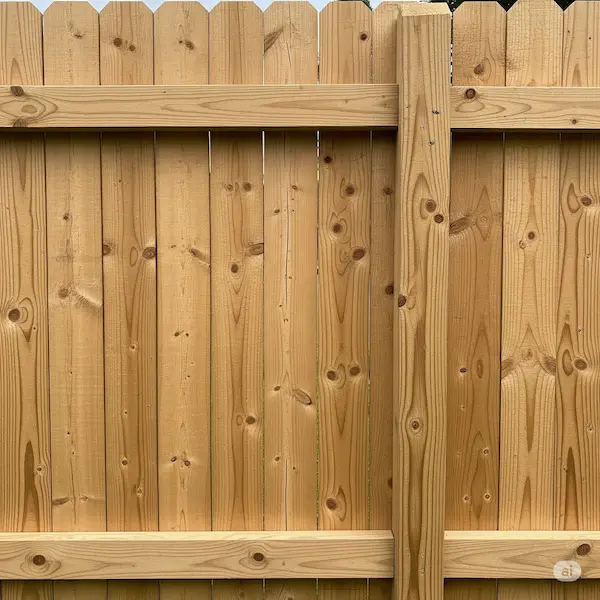
Wood can rot or bend in cold weather, but pressure-treated wood is tougher. Still, it needs care.
To make wood fences winter-ready:
- Put on a waterproof seal every 2–3 years
- Make sure the posts go deep (post depth for snow should be 36–42 inches below the frost line)
- Use rust-proof (galvanized) fasteners
Even though it needs more care, this type of wood is still popular because it’s affordable and has a nice, natural look.
Cold-Climate Fence Installation Tips
Picking the right fence material is only half the job. In places like Buffalo, you also need to install it the right way. Here are some tips to help your fence survive the winter:
Dig Deep Fence Posts
In Buffalo, the frost line can go down 40 inches. If your fence posts don’t go below that, frost heave can push them up and mess up the fence. This is one of the main reasons fences break in cold areas.
Use Gravel and Concrete Base
To keep water away from the posts, put gravel in the hole before adding concrete. This helps water drain and protects your fence from too much moisture.
Consider Wind Gaps
Solid fences can catch the wind like a sail. Leaving small gaps between boards helps the wind pass through and keeps your fence from breaking.
Should You DIY or Hire a Pro?
Doing it yourself may save money at first, but winter fence projects are tricky. Professionals know the weather, soil, and rules. If you don’t know how to dig below the frost line or use the right sealants, a DIY project could end up costing more.
Want to know the pros and cons? Read our blog: DIY Fence vs. Professional Installation – What’s the Best Choice for Your Home or Business?
Local Regulations and Permits in Buffalo, NY
Before you start building, make sure to check the city rules. Some neighborhoods in Buffalo don’t allow fences taller than 4 feet in front yards. Back and side fences can usually be up to 6 feet.
You can find all the rules on the City of Buffalo’s official website.
Conclusion: Choosing the Best Fence for Your Winter Needs
Buffalo winters are rough, but your fence doesn’t have to be. Choosing frost-resistant materials like vinyl, aluminum, or composite, and making sure your posts are the right post depth for snow, will give you a strong, good-looking fence that lasts.
Here’s a quick summary of the best fence for snow Buffalo NY:
- Vinyl: Best all-around for strength and low maintenance
- Composite: Best-looking and toughest in bad weather
- Aluminum: Lets snow and wind pass through easily
- Wood: Cheaper but needs more care
- Chain Link: Strong and affordable, but not private
FAQ: Best Fence for Snow in Buffalo, NY
The best fence for snow Buffalo NY is usually made from vinyl, composite, or aluminum. These materials are strong, don’t soak up water, and can handle lots of snow and freezing cold without breaking, rusting, or bending.
Winterproof fences are built using frost-resistant materials like vinyl and composite. They are also put in the ground with the right post depth for snow, which means the posts go at least 36–42 inches deep. This stops the fence from being pushed up when the ground freezes and thaws. Also, using moisture-resistant fencing and special sealants helps stop damage from freezing and melting.
You can use pressure-treated wood for fencing in cold climates, but it needs regular care. You have to seal it every 2–3 years and put the posts deep enough to avoid frost pushing them out. If you want a fence that’s easier to take care of, vinyl or composite is usually a better choice.
To get the right post depth for snow, fence posts in Buffalo should go at least 40 inches into the ground, below where the ground freezes. This keeps the posts steady and stops them from being moved by frozen ground in the winter.
For the best moisture-resistant fencing, vinyl and composite are the top picks. They don’t take in water, won’t rot or rust, and are easy to care for. That makes them perfect for Buffalo’s snowy and wet winters.
Looking for a Fence That Stands Up to Buffalo Winters?
At All Pro Fence Buffalo, we’re experts at building strong, winterproof fences with the right materials for snowy Buffalo, NY.
If you want us to install it or you’re doing it yourself, we’ve got the tough, moisture-resistant fencing you need. Call us today at 716-452-9399 or visit allp.kdmarketinggroup.com to get started!

